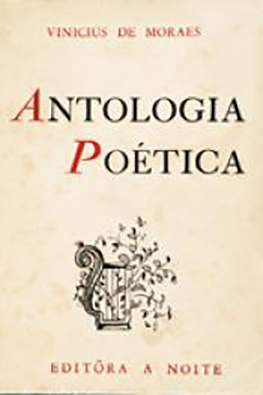
Organized by the author himself, this book is the first Anthology of Vinicius's work. Published in 1954, although the first edition does not bear the date, it was reissued in an expanded form in 1960, by Editora do Autor, by his friends Rubem Braga and Fernando Sabino. In the 1954 edition, it is the same Rubem Braga who signs the front page of the book.
The Anthology covered 21 years of publications, with books that were either out of print or in very limited print runs. In the presentation of the first edition, Vinicius gives his explanation for the collection of texts chosen by the author (identified by him as “A.”):
“This book could be divided into two parts, corresponding to two distinct periods in A.
The first, transcendental, often mystical, resulting from his Christian phase, ends with the poem "Ariana, the woman", published in 1936. Except, here and there, for a few small amendments, the only noteworthy change in this part was to reduce it. The poem "O Cemetery da Dawn" is the first four stanzas, in which A. responded to an old idea from his friend Rodrigo M.F. de Andrade.
To the second part, which opens with the poem "The False Beggar", the first, as A. remembers, written in opposition to the previous transcendentalism, includes some poems from the book New Poems, also represented in the other phase, and the rest verses later published in books, magazines and newspapers. In it, the movements towards the material world are clearly marked, with the difficult but consistent repulsion towards the idealism of the early years.
In between, the Five elegies (1943) were placed, as representative of the transition period between those two contradictory trends, - a book also where they best met and merged in search of their own syntax.
Despite certain disparities, easily verifiable in the index, the chronological criterion was imposed for a true impression of what was the struggle maintained by A.against himself in the sense of a liberation, achieved today, from the prejudices and nausea of his class and the his environment, which so much, and so uselessly, distressed his formation.
Los Angeles, June 1949.”
